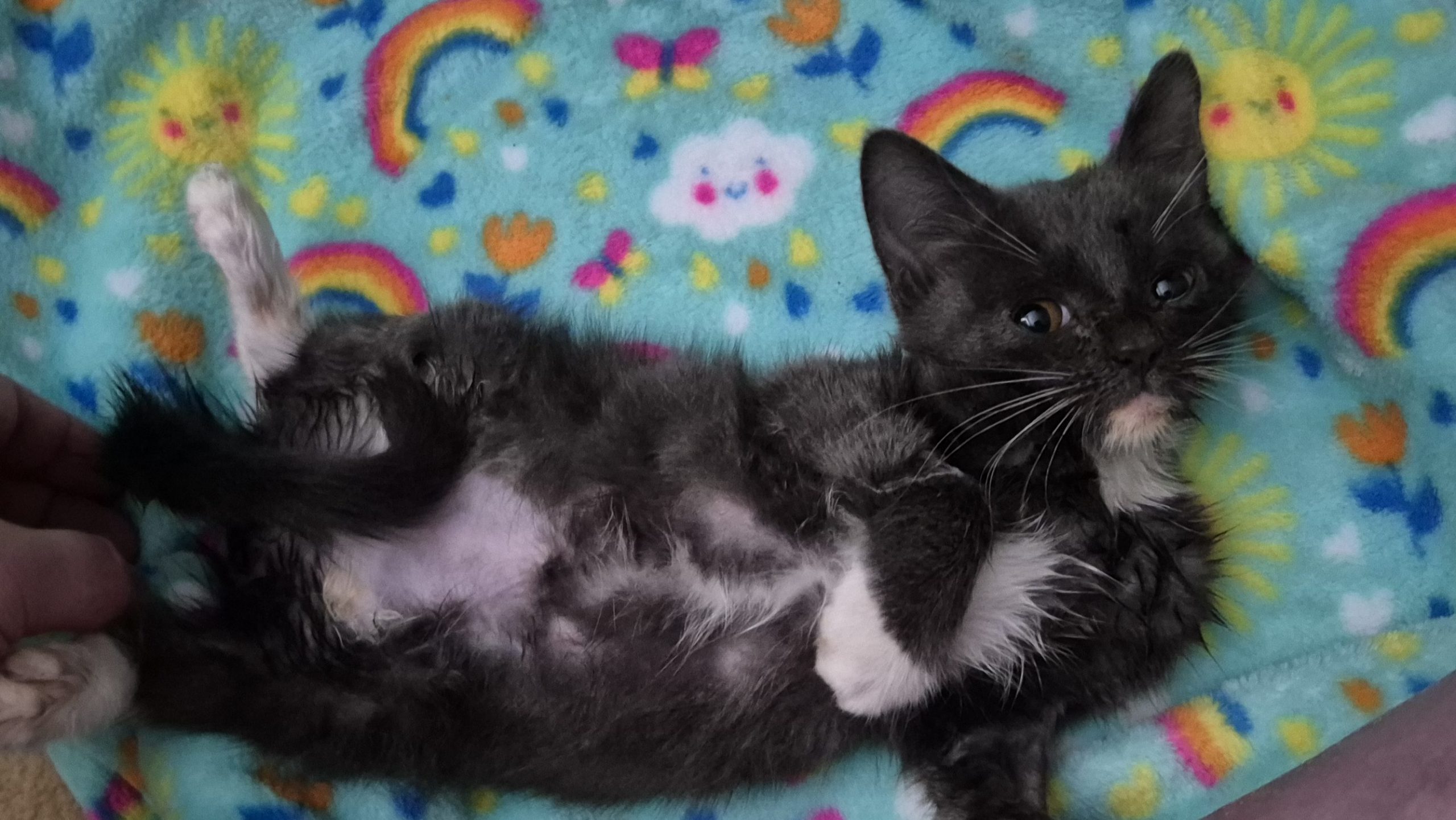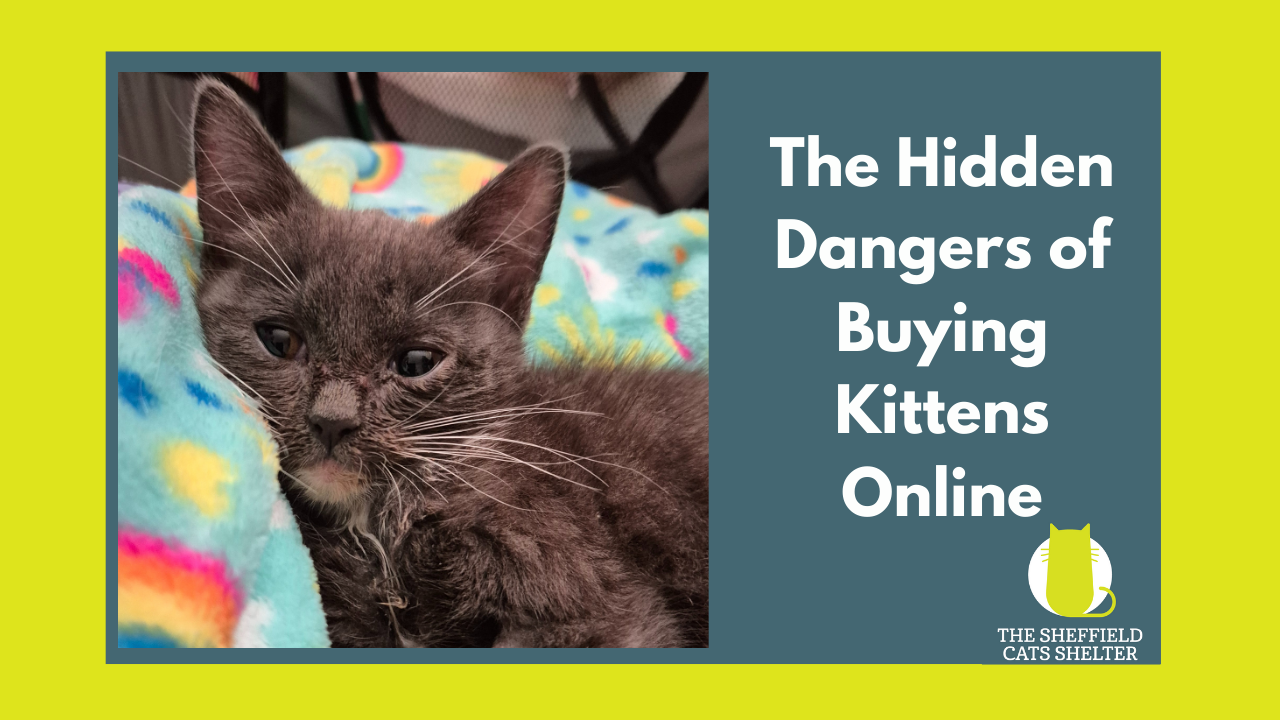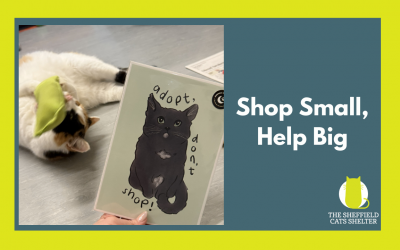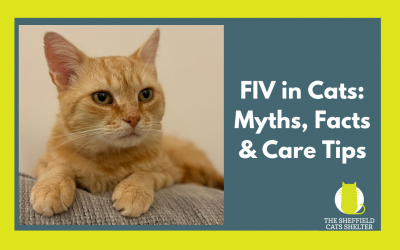Sometimes people visit a breeder to meet kittens or cats, and they leave feeling worried about the animals’ welfare. Maybe the cats seem unwell, or the living conditions don’t look right. Knowing what to do in this situation can make a real difference, not just for those animals but also for preventing poor breeding practices in the future.
Here are the key steps you can take if you have concerns about a breeder:
1. Report Immediate Concerns of Cruelty or Neglect
If you believe cats are suffering or living in cruel/neglectful conditions, the National RSPCA is the first point of contact. They can investigate and, where necessary, attend quickly to protect the animals.
👉 Tip: Try to gather evidence before you leave. Clear photos or videos of the cats’ living conditions, their health, or anything that feels wrong will strengthen your report.
Report to the RSPCA: https://www.rspca.org.uk/reportaconcern or call 0300 1234 999
2. Contact Your Local Council
Local councils are responsible for licensing animal businesses. If the breeder is unlicensed or operating illegally, the council has the power to take action. They can stop breeding operations in their area.
Find your local council: https://www.gov.uk/find-local-council
3. Check the Governing Council of the Cat Fancy (GCCF)
If the breeder claims to be registered with the GCCF (a leading pedigree cat registry), they must follow a strict code of ethics. If they breach those standards, for example, through poor welfare or by selling sick kittens, you can file a formal complaint.
Find complaint forms: https://www.gccfcats.org/
4. Contact Trading Standards
Selling sick kittens, misrepresenting animals, or operating under false pretences may also be a trading standards issue. This can be seen as fraud or illegal selling. Your local trading standards office can investigate and take enforcement action.
✅ Summary:
- Report cruelty/neglect → RSPCA
- Report unlicensed breeders → Local Council
- Report breaches of breeding ethics → GCCF
- Report fraudulent selling → Trading Standards
By speaking up, you can help improve animal welfare and protect future cats and kittens from suffering.
Why Acting Matters
Raising concerns helps in two ways:
Even if you’re unsure, reporting what you’ve seen ensures the right people can step in.
- It protects the cats you’ve seen in the moment.
- It helps stop bad breeders from continuing harmful practices long-term.
Because when we don’t act, stories like Donny’s happen💔

This is Donny’s story. It’s hard to read, but it needs to be told
Donny was only a kitten when he was sold by a “breeder.” Within hours of arriving at his new home, it was clear something was very wrong. He was weak. He wouldn’t eat. He could barely stand.
Days later, he was still no better and had to be rushed to the vets, but by then, Donny needed around-the-clock care. He was given fluids, pain relief, and antibiotics, but his tiny body was so fragile. The owner couldn’t cope with the costs, so Donny was signed over.
That night, a vet nurse took him home. He kept him alive until morning. And then Donny was taken in by our Cat Welfare Manager, Beckie.
When she first held him, he could hardly move. He had messed himself in his carrier because he didn’t even have the strength to get away. She cleaned him up and gave him gentle cuddles. For the first time in days, he felt safe and warm.
She offered him food. At first, he wasn’t interested. But later… a nibble. Then another. He even found the strength to bat at a toy mouse. For a brief moment, there was hope. He was still so weak, but he tried to follow play as she flicked toys across the floor.
That night, Beckie believed he might pull through.
But in the early hours of the morning, Donny’s body gave out. He grew restless, then lifeless. On the way to the emergency vet, he had a seizure. By the time Beckie arrived, there was nothing more that could be done. Euthanasia was the only option to prevent him from suffering any longer
He died in Becky’s arms. Wrapped in his blanket. Loved, even at the very end.
Donny’s life was far too short, and it was never his fault💔

This is the reality of backyard breeding. Kittens born in filthy conditions, sold for cash with no care, no health checks, no future. Many of them don’t make it. Those who do often carry hidden illnesses or trauma. Families are left heartbroken.
Donny’s story is not rare. It happens again and again, and it will keep happening unless we speak out.
Donny’s story shows exactly what can go wrong when kittens are bred without care. But it’s not just about one cat; these situations happen every day, and many well-meaning families get caught up without knowing the risks. Here’s what you need to be aware of before you think about buying a kitten online…
🚫 The Risks of Buying Kittens Online
Poor Welfare: Many people breeding cats at home don’t neuter their pets, which leads to repeated, stressful pregnancies for the mother.
Health Problems: Kittens are often sold too young, unvaccinated, and without vet checks. This means buyers face high vet bills or heartbreaking loss when the kitten becomes sick.
No Socialisation: Kittens raised without proper care may grow up with behavioural issues, making life harder for both cat and owner.
🧬 The Dangers of Irresponsible Breeding
When kittens are bred just for money, very little thought is given to health, welfare, or genetics. This can cause long-term suffering for the cats and heartache for the people who buy them.
Inbreeding Risks: Breeding related cats together increases the chance of inherited conditions, birth defects, and weaker immune systems. Kittens may look healthy at first, but can develop lifelong health issues.
No Health Screening: Reputable breeders test their breeding cats for genetic conditions and only breed responsibly. Casual breeders do not, so problems like heart disease, kidney issues, or joint problems can be passed down.
Buyer’s Risk: Families who think they’re getting a healthy kitten may instead face huge vet bills or lose their pet far too young.
Unknown Parentage: Backyard breeders rarely keep track of which male cats father the kittens. In many cases, the dad could even be a close relative of the mother.
🧬 Unknown Fathers: The Difference Between Rescue and Backyard Breeding
At shelters like ours, many kittens arrive with their mums, but we don’t always know who the dad was. That’s not unusual, cats can get pregnant easily, and often the fathers are strays.
The difference is in our care and support:
- Every kitten in rescue gets a full health check from a vet.
- If we notice any signs of illness or inherited conditions, they receive treatment straight away.
- And importantly, if health issues show up later, we are here to support the adopters.
By contrast, kittens bred only for money often get none of these checks or protections. Backyard breeders don’t test the parents for genetic conditions, and if problems appear later, buyers are usually left on their own.
⚠️ Where Do These Kittens End Up?
Sold for Profit Only: Welfare is often ignored. Once the money changes hands, the breeder has no responsibility.
Risk of Unsafe Homes: Without checks, kittens may be sold to people with bad intentions, including those who use animals for abuse, neglect, or to make money in unsafe ways.
Fueling the Cycle: Buying kittens from unlicensed breeders encourages them to continue, while rescue centres remain full of cats needing homes.
❤️ Safer, Better Alternatives
Adopt from a Shelter: Rescue kittens and cats are neutered, vaccinated, and health-checked. You’ll also get advice and support for settling them in.
Use Reputable Breeders (if you choose pedigree): They should be licensed, GCCF-registered (if cats), and happy to show you the cats’ living conditions.
A responsible breeder will:
- Neuter or spay cats that aren’t part of a breeding programme.
- Let kittens stay with their mum until at least 12–13 weeks.
- Provide vaccination, microchipping, and a vet check before rehoming.
- Ask you questions, because they care where their kittens go.
📝 How You Can Help📝
Don’t Buy on Impulse: No matter how cute the kitten looks online, think about where they came from.
Report Concerns: Use the steps above (RSPCA, council, GCCF, trading standards) if you suspect poor practice.
Spread the Word: Share this info with friends and family who might be tempted to “just buy a kitten” online.
By choosing adoption or responsible breeders, asking the right questions, and spreading awareness, we can help break the cycle of backyard breeding, one kitten at a time.





